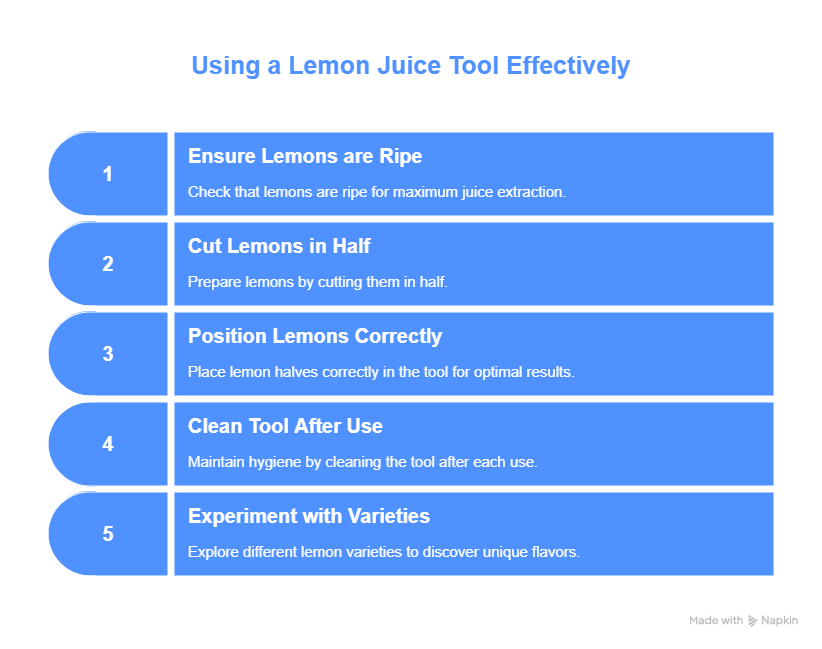
Lemon juice tools are invaluable kitchen gadgets that can enhance your culinary experience by making the extraction of lemon juice easier and more efficient. Whether you’re a seasoned chef or a home cook, understanding how to use these tools effectively can elevate your recipes and save you time. This document outlines five Essential Tips for Using a Lemon Juice tool, ensuring you get the most out of every lemon.
The Ultimate Guide to Orange Juicing Essentials!
1. Choose the Right Tool
There are various types of lemon juice tools available, including handheld juicers, electric juicers, and reamers. Selecting the right tool for your needs is crucial. Handheld juicers are great for small quantities, while electric juicers can handle larger volumes quickly. Reamers are perfect for those who prefer a more traditional approach. Consider your cooking habits and choose a tool that best fits your lifestyle.
2. Roll the Lemon Before Juicing
To maximize juice extraction, roll the lemon on a hard surface before cutting it. This process breaks down the internal membranes and helps release more juice. Apply gentle pressure with your palm as you roll, and you’ll notice a significant increase in the amount of juice you can extract.
3. Cut the Lemon Properly
When preparing your lemon for juicing, cut it in half crosswise rather than lengthwise. This orientation allows for better access to the juice sacs inside the lemon, making it easier to extract every last drop. If you’re using a handheld juicer, this method also ensures a better fit for the tool.
4. Use a Strainer for Pulp-Free Juice
If you prefer your lemon juice without pulp, consider using a fine mesh strainer or cheesecloth when extracting the juice. Simply pour the juice through the strainer after juicing to catch any pulp or seeds. This step is especially important for recipes that require a smooth texture, such as salad dressings or marinades.
5. Clean Your Tool Immediately
After using your lemon juice tool, clean it promptly to prevent any residue from hardening and becoming difficult to remove. Most lemon juicers are dishwasher safe, but if you’re washing by hand, use warm soapy water and a soft sponge. This practice not only maintains the tool’s functionality but also prolongs its lifespan.
By following these Essential Tips for Using a Lemon Juice Tool, you can enhance your experience with lemon juice tools and make the most of this zesty ingredient in your cooking. Enjoy the bright, fresh flavor of lemon in your dishes, and happy juicing!